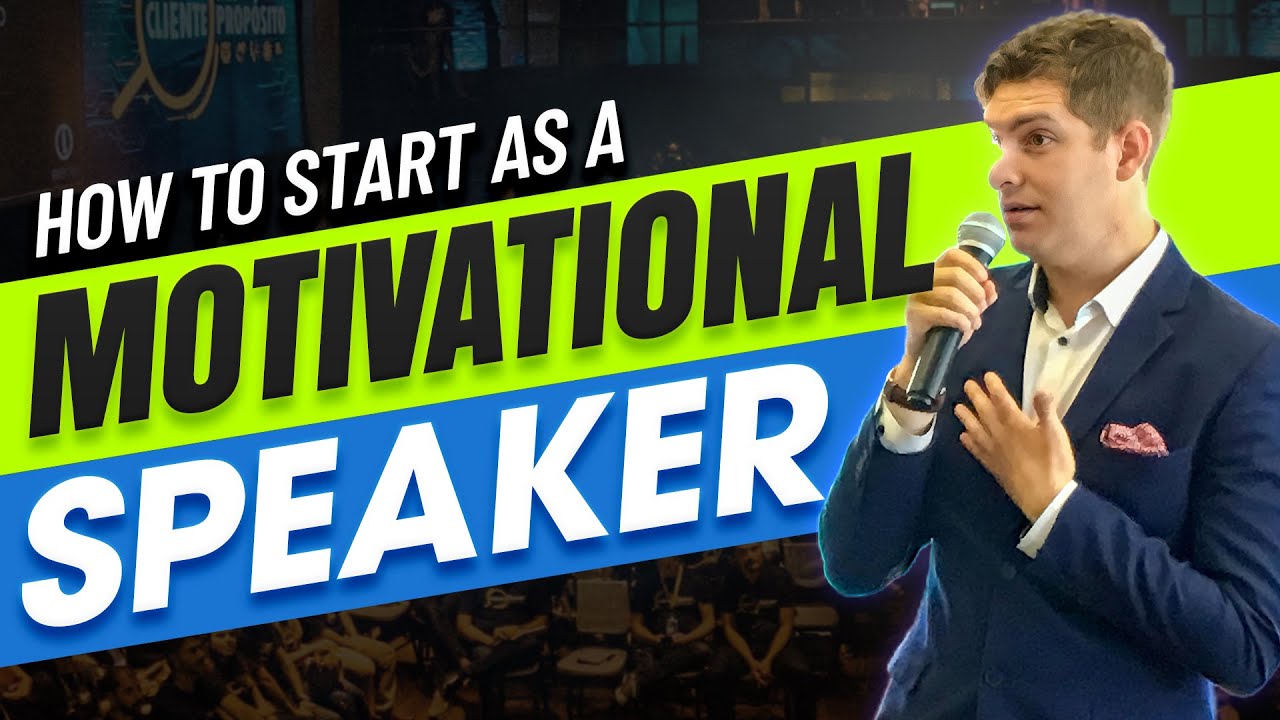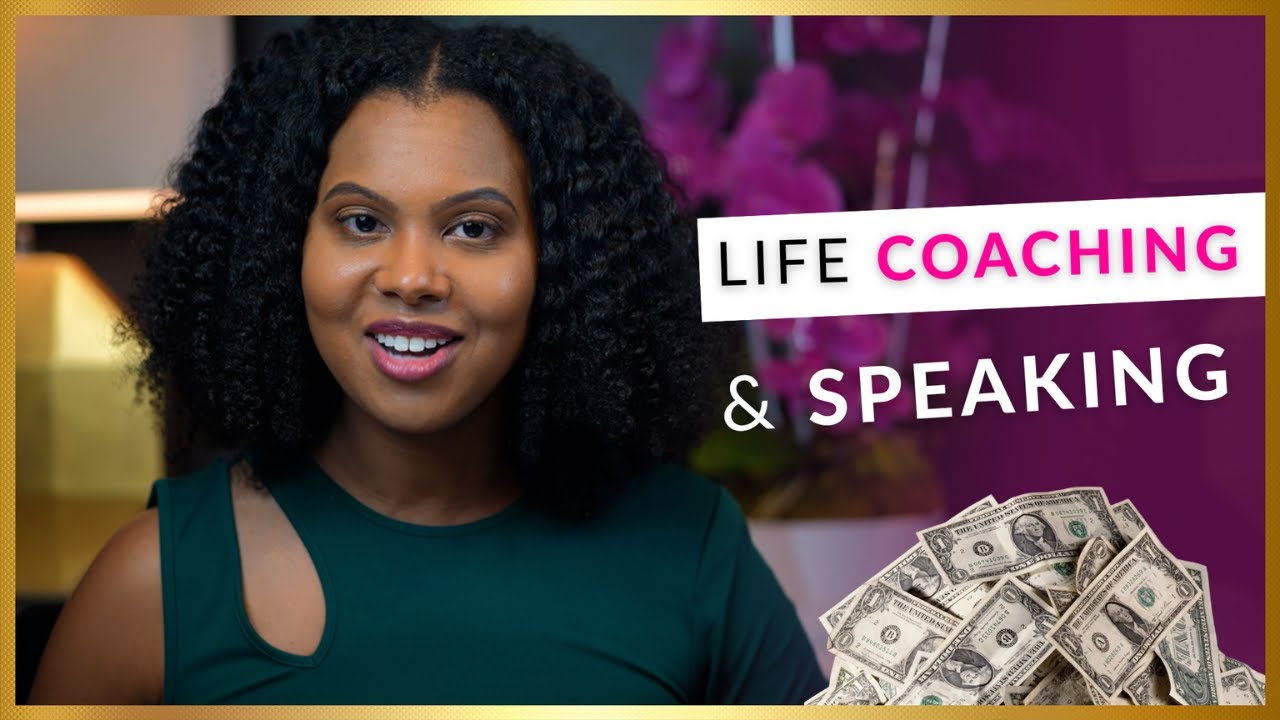Becoming a motivational speaker is more than just stepping onto a stage and delivering a speech. It’s about sparking change, inspiring hope, and igniting passion in others. If you’re on the journey of discovering how to become a motivational speaker, you’re in for an exhilarating ride. It’s crucial to weave together self-awareness, skill development, and effective branding. Here’s a structured seven-step approach to guide you on your path to success.

7 Steps to Master How to Become a Motivational Speaker
1. Define Your Niche and Audience
The first step in mastering how to become a motivational speaker is to zero in on your niche. What topics ignite your passion? Who stands to benefit the most from your experiences and insights? Take Tony Robbins, for example; he brilliantly navigates personal development and business mastery. On the flip side, Brené Brown brings unique attention to vulnerability and leadership. By defining who you are for your audience, you enhance your ability to connect.
Once you’ve identified your niche, consider your target audience. Whether it’s corporate leaders, students or everyday individuals, understanding their needs and struggles enables you to craft a message tailored to them. Remember, the clearer you are in defining your niche, the stronger your impact will be.
2. Develop Your Unique Message
Your message is the heartbeat of your motivational speaking career. It’s what separates you from the crowd. Think about what life lessons, professional journeys, or valuable insights you can share. Eric Thomas is a great example; with his fiery delivery, he underscores the importance of hard work and education. His personal story of overcoming dire circumstances resonates with youth and educators alike, demonstrating the power of a personal narrative.
Writing down your thoughts can help channel your message. Draft a personal mission statement that encapsulates what you stand for and what you aim to inspire in others. Your message should empower, uplift, and resonate with your audience’s needs and desires—as if it were crafted just for them.
3. Hone Your Speaking Skills
Mastering the art of public speaking is non-negotiable. Quote me on this: practical experience is your best teacher. Join organizations like Toastmasters or engage in workshops with industry leaders. Think about Lisa Nichols, who constantly highlights practice’s importance in her journey. She encourages aspiring speakers to seize local speaking opportunities as stepping stones to refine their skills.
Don’t shy away from constructive criticism. Join regular feedback circles, where peers can help you polish your delivery and charisma. Remember, the ability to speak confidently and compellingly opens the door to greater speaking opportunities.
4. Build a Personal Brand
In today’s digital age, a strong personal brand is essential. Create a professional website, bolster your social media presence, and share content that aligns with your motivational message. Check out Mel Robbins; she has built an impressive brand through books, TED Talks, and engaging social media content. Her relatable approach enables her to connect deeply, amplifying her reach.
Consider collaborating with brands and influencers that align with your values. By establishing partnerships, you can extend your brand’s visibility while attracting audiences who resonate with your message.
5. Create Impactful Content
To inspire, your content must truly resonate. Experiment with storytelling, use real-life experiences, and sprinkle in actionable advice to forge a memorable connection. Look to Simon Sinek, whose “Start with Why” methodology captivates a variety of industries. His TED Talk is an excellent model, demonstrating how compelling narratives can galvanize audiences around a shared purpose.
Create materials, like workbooks or guides, to support your audience on their journey. This adds a tangible layer to your speaking engagements, making your message even more impactful.
6. Network and Collaborate
Networking is pivotal, and leveraging connections can be a game-changer. Attend speaking events, join associations, and seek mentorships with seasoned experts who can guide you. For instance, Inky Johnson, transitioning from college athlete to motivational speaker, utilized networking to gain speaking engagements and effectively share his compelling message about resilience.
Invest time in building genuine relationships. Follow up with everyone you meet; you never know when an opportunity might arise. Remember, collaboration often opens doors that lead to high-ticket speaking engagements.
7. Seek Feedback and Evolve
Understand this foundational principle: growth is a continuous journey. Solicit feedback from peers, audience members, and mentors to refine your delivery and overall message. Robin Sharma, a thought leader in his field, is known for embracing critiques, allowing him to evolve his speaking style year after year.
Always be willing to adapt and reinvent your approach. The most successful speakers are those who never stop learning and growing.

Crafting an Authentic Presence
Embracing your journey as a motivational speaker means cultivating authenticity. Audiences connect deeply with those they see as genuine and relatable. Share personal stories that highlight both your triumphs and struggles. This storytelling creates an emotional resonance, allowing you to motivate change and inspire action.
Consider the way Greta Thunberg captivates audiences with her heartfelt speeches. The sincerity behind her words fosters a connection that mobilizes global movements. Remember: authenticity breeds trust, and trust creates impact.

Building Your Speaking Portfolio
A well-crafted portfolio showcasing your speaking engagements, testimonials, and key performance indicators can attract potential clients. Think of this as your calling card. Including videos of past speeches can significantly bolster your visibility and demonstrate your expertise.
Your portfolio reflects your journey, so make sure it’s visually appealing and well-organized. Just as individuals search for anti-bullying posters with meaningful messages, people seek out speakers whose portfolios resonate with their needs.

Leveraging Technology to Reach More People
In our digitized society, harnessing technology can help you stretch your influence far and wide. Consider hosting webinars, launching a podcast, or starting a YouTube channel dedicated to sharing motivational content. Look at Jay Shetty; he transformed his podcast into a powerful platform, connecting with diverse audiences and sharing valuable insights.
Using these platforms not only helps you reach more people, but they also provide an avenue to continuously share your message. It’s a fantastic way to sustain engagement and remind your audience of your motivation.
![5 FAST ways to get PAID Speaking Gigs [fill your calendar]](https://www.conniepheiff.com/wp-content/cache/flying-press/b1808d2082921e7984046469f4b077df.jpg)
Final Reflections on Becoming an Inspirational Force
Becoming a motivational speaker transcends the act of delivering a message. It’s about igniting passion and encouraging action in others. The essence of motivational speaking lies in your ability to resonate with your audience and spur them toward self-discovery.
By following these actionable steps, investing in your growth, and continuing to refine your craft, you can inspire others and facilitate meaningful change. The world awaits your unique voice, so embrace this incredible journey and make your mark.
How to Become a Motivational Speaker: Fun Trivia and Interesting Facts
Discovering the Path to Success
So, you’re thinking about how to become a motivational speaker? Well, let me tell you, it can be quite an adventure! Did you know that the average person speaks about 16,000 words a day? That’s more than enough to fill ten pages in a book! Just like public speaking can inspire countless individuals, effective communication can also help you master skills such as how to learn public speaking online. It’s a great way to practice and hone your craft without stepping out of your comfort zone. Plus, there’s no shortage of resources available to help you along your journey!
Now, if you’re serious about stepping onto that big stage, consider enrolling in some specialized programs, like keynote speaker training. These programs not only polish your speaking skills but also teach you how to engage and connect with your audience on a personal level. And here’s a fun fact: Did you know that many renowned speakers, including Tony Robbins и Brené Brown, have a background in psychology? This knowledge can help you relate to your audience’s feelings and fears, making your message even more powerful.
The Quirky Truths About Staying Motivated
Becoming a motivational speaker also means finding inspiration in the quirkiest places! Have you ever seen a fish with big lips? These fascinating creatures can remind us that it’s important to embrace our uniqueness. Your personal stories and experiences set you apart, and people will gravitate towards your authenticity. Think about how you can incorporate humorous and relatable anecdotes in your speeches to really capture the crowd’s attention.
Plus, let’s not forget that motivational speaking isn’t just about delivering speeches; it’s also about tackling relevant issues. For example, using anti-bullying posters in your presentations can help draw attention to crucial topics that need to be addressed in today’s society. By blending impactful messages with engaging visuals, you’re creating a compelling narrative that resonates with your audience.
Tools to Help Shape Your Speaking Journey
As you embark on your quest to master how to become a motivational speaker, consider investing in a speaking career course. These courses can equip you with the tools necessary to elevate your unique speaking style. Fun trivia: Did you know that a well-structured presentation can boost information retention by up to 70%? This means your audience is more likely to remember what you’ve shared long after you’ve left the stage.
Lastly, even amidst mastering your speaking techniques, don’t forget to stay informed about the disadvantages of paying off a car loan early or follow trends on platforms like crunchyrolll for some lighthearted distraction. Balancing your life while pursuing your passion makes for a more vibrant persona as a speaker! So, buckle up and embrace the journey; your voice has the power to ignite change!

What qualifications do I need to be a motivational speaker?
You don’t need any formal qualifications to be a motivational speaker, but a mix of skills like public speaking, storytelling, and empathy will definitely help. Taking courses in public speaking, psychology, or marketing can also add to your toolkit.
How can I start my career as a motivational speaker?
Starting your career in motivational speaking involves honing your speaking skills and finding your niche. Begin by practicing in small settings, like local meetups, and build your network by connecting with fellow speakers and event planners.
Do motivational speakers get paid?
Yes, motivational speakers do get paid, though earnings can vary widely based on experience, reputation, and market demand. Typically, as of late September 2024, the average pay for a motivational speaker in the U.S. is around $17.07 an hour.
How can I start my motivational speech?
To kick off your motivational speech, start with a strong hook to grab your audience’s attention. This could be a personal story, a surprising statistic, or a thought-provoking question that sets the tone for your message.
Is there a demand for motivational speakers?
There’s definitely a demand for motivational speakers, especially in corporate settings, schools, and community events. Organizations are always looking for ways to inspire and motivate their teams or audiences.
How do I become a paid motivational speaker?
To become a paid motivational speaker, you’ll need to establish your brand, develop your speaking skills, and market yourself effectively. Start by creating a solid online presence and networking with potential clients.
What is the monthly income of motivational speaker?
The monthly income of a motivational speaker can vary a lot based on how often you book gigs and your speaking fees. Some speakers might only earn a few hundred bucks a month, while others can bring in several thousand.
How do I become a motivational speaker with no experience?
If you’re just starting out and lack experience, consider volunteering to speak at community events or offering free talks. This builds your confidence and helps you gain valuable feedback.
How do I sell myself as a motivational speaker?
Selling yourself as a motivational speaker comes down to showcasing your unique story and approach. Use social media, personal branding, and testimonials from past audiences to highlight what sets you apart.
How do I get hired as a speaker?
To get hired as a speaker, networking is key. Attend industry events, connect with organizers, and continually promote your services. Having a professional website can also help attract bookings.
Can anyone become a motivational speaker?
Yes, anyone can become a motivational speaker if they have a passion for inspiring others. It’s about sharing your story and insights in a way that resonates with people.
Who is the most paid motivational speaker?
The most highly paid motivational speaker can vary, but names like Tony Robbins often come up, known for his massive seminars and strong brand.
What is the most famous motivational speech?
Some famous motivational speeches that stand out are Martin Luther King Jr.’s “I Have a Dream” and Steve Jobs’ Stanford commencement speech, which continue to inspire countless people.
How do you introduce yourself as a motivational speaker?
When introducing yourself as a motivational speaker, keep it simple. Share your name, a brief bit about your background, and the key message or topic you’ll cover—this gives your audience a quick snapshot of who you are.
What is the difference between a motivational speaker and an inspirational speaker?
Motivational speakers typically focus more on energizing and encouraging audiences, while inspirational speakers delve deeper into personal stories and experiences, aiming to lift spirits and provoke thought.
What credentials does a motivational speaker need?
There are no hard and fast credentials required to be a motivational speaker, but having relevant life experiences, training, or expertise in your topic can boost your credibility.
What education do you need to be a motivational speaker?
While there’s no specific degree for motivational speakers, education in fields like psychology, communication, or business can provide valuable insights and tools for effective speaking.
What is the best degree for motivational speakers?
Although there’s no “best degree,” courses in public speaking, psychology, and marketing can be very beneficial for aspiring motivational speakers.
What is a certified motivational speaker?
A certified motivational speaker is someone who has undergone certain training or certification programs in speaking techniques or methods, helping to validate their skills and expertise in the industry.









